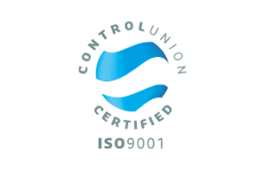Sustainability
Environmental Impact
Water
It is the largest natural resource and at the core of sustainable development. It is critical for socio-economic development, healthy eco systems and for human survival itself. It is estimated that by 2025, 60% of population will experience serious water-stress.

Most popular material choice is cotton. It’s natural, biodegradable and a renewable resource, but the global average water footprint of 1 kg of cotton is estimated to be at least 10,000 liters of water.

Cotton requires fertilizers, pesticides and insecticides, which contaminate the water and affect the farmer’s health.
Synthetic fibers like Polyester/Nylon/Acrylics, which account for more than 50% of material consumed, are no good either as their process is water thirsty & adds a lot of chemicals to the waste stream.

Cotton takes up lot of the cultivated area space and causes soil degradation.
Energy
Globally, the production and use of Energy is the largest source of greenhouse-gas emissions, affecting our climate as a whole./p>

For Synthetic materials complex manufacturing process is required to transform them into fiber, which is highly energy intensive.

Textile synthetic materials like Polyester/Nylon/Acrylics are petroleum based and Oil industry is one of the biggest pollutant.

The whole tiring process of textile manufacturing with its transport, regardless of raw material choice, consumes a lot of energy.
Pollution
It is the largest natural resource and at the core of sustainable development. It is critical for socio-economic development, healthy eco systems and for human survival itself. It is estimated that by 2025, 60% of population will experience serious water-stress.

At every stage of Textile production, gases are released that contribute to bad air quality.

In many developing countries, these landfills are set on fire which just adds more harmful gases to the atmosphere.

Textile production generates waste. Scraps, clothing in landfills emit methane, a potent greenhouse gas, worsening Global Warming.

Some of textile waste ends up in our oceans, which deeply affects marine life.
OUR CONTRIBUTION
Commitment to UNDP Guidelines


















REDUCTION DEPENDENCY
How we reduce dependency on virgin material

Recycled Cotton
- Reduced Water Consumption
- Reduced GMO usage
- Biodegradeable
- Waste diversion prevents incineration
Recycled Polyester
- Reduced oil dependency
- Saving marine life
- Reducing landfill
- Waste diversion prevents incineration


Sustainable Viscose
- Biodegradeable
- Reduced Energy Consumption
- Reducing Deforestation
- Responsible Water Consumption
Tencel
- Biodegradeable
- Botanic Origin
- Sustainable Production
- Breathable

End of Production Cycle
CERTIFICATION
We are a proud member of



Social Responsibility

We strive to ensure that we provide a safe and secure environment to our employees. We believe that we provide working conditions that are considered to be humane and are compliant to UNDP guidelines that we have incorporated in our operations.

To make this promise a reality we ensure that the workers are paid a fair minimum wage according to the government guidelines. We provide secure housing to our workers and make it a point that we distribute healthy meals at subsidised rates.

Those engaged in the operation of heavy machinery are outfitted with a comprehensive array of protective garb, encompassing aprons, gloves, eye goggles, & earplugs. Moreover, meticulous provisions are made to ensure the presence of fire-resistant equipmentand fully stocked first aid kits on the premises